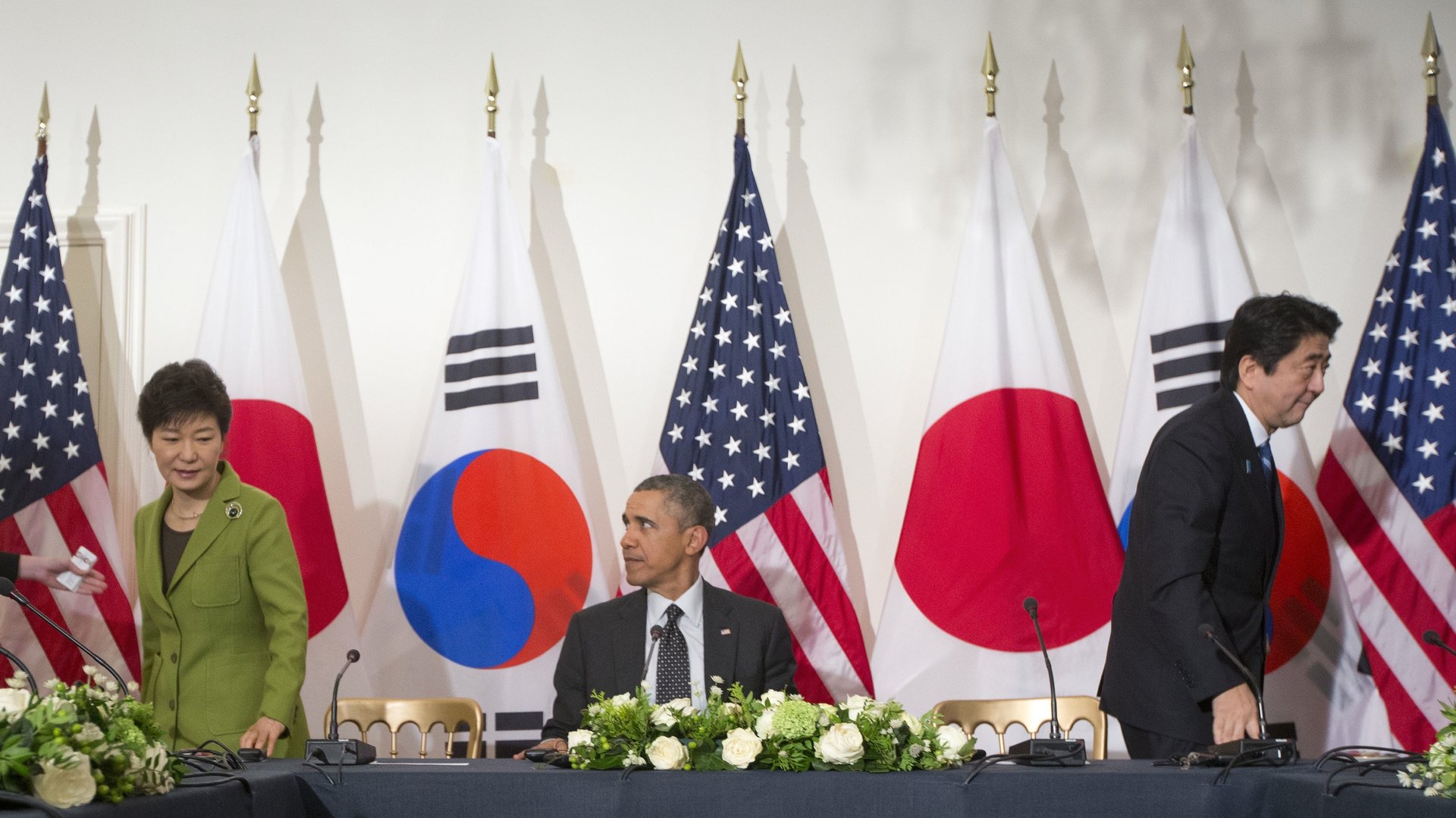The three problems plaguing Japan-South Korea relations
The following is excerpted from The Japan-South Korea Identity Clash: East Asian Security and the United States by Brad Glosserman and Scott A. Snyder. Copyright Ⓒ 2015 Columbia University Press. Used by arrangement with the publisher. All rights reserved.


The following is excerpted from The Japan-South Korea Identity Clash: East Asian Security and the United States by Brad Glosserman and Scott A. Snyder. Copyright Ⓒ 2015 Columbia University Press. Used by arrangement with the publisher. All rights reserved.
It is not surprising that Japan-South Korea (ROK) relations are so complicated, given that Japan invaded and occupied Korea and tried to assimilate Koreans for over three decades during the 20th century. The psychological scars would be even deeper if not for interceding developments, including the fratricidal Korean War, a bloody fight that linked Japan and South Korea (from a security perspective) as a result of Japan’s logistical support in the war and the establishment of Japan and South Korea’s parallel alliances with the United States.
Perhaps what is even more remarkable is South Korea’s great success by following Japan’s developmental path, a path that has created an economic and political partner with shared values and common interests in Northeast Asian stability. Yet in spite of this convergence and repeated efforts to forge a “future-oriented” path in Japan-South Korea relations, historical grievances block the relationship from reaching its full potential.
Despite the common interests and their similar development paths, there is surprisingly little literature on contemporary Korea-Japan relations. The existing literature posits three rationales shaping prospects for cooperation between them.
The first is the fact that they share ties with the United States as a common alliance partner. Victor Cha developed this thesis in his landmark study on the ROK-Japan quasi-alliance relationship.Her argued that alliance partner evaluations of US commitment to the region have been an important factor in Korean and Japanese calculations of their own relationship, and that perceptions of US distancing from the region during the Cold War were a major factor that enabled South Korea and Japan to set aside history issues and work more closely together.
A second rationale for improved ROK-Japan cooperation is reflected in the “China threat” school, which argues that South Korea and Japan as democratic market economies with shared values should enhance cooperation to thwart the rising influence of a system that remains politically closed to competition under the Chinese Communist Party and poses a challenge to the political, legal, and security status quo. But the relative lack of cooperation between Japan and South Korea during the Cold War, when the common threat from the Soviet bloc was higher, suggests that the emergence of a new threat, such as from China, may not result in enhanced Japan-ROK cooperation. In fact, despite similar threat perceptions related to China’s rise, it is increasingly clear that Japan and South Korea have strikingly different preferences when it comes to tactics to manage that rise, stemming from differing geographic conditions and historical experiences.
A third rationale focuses not on the reasons for cooperation but on obstacles to ROK-Japan coordination and joint action. It explores the emergence of identity issues that are powerful factors in domestic politics and ultimately prevent bilateral cooperation between the two countries. Gilbert Rozman has been the most active proponent of an identity-based approach to understanding the limits of cooperation among the countries in Northeast Asia.
After extended observation of the relationship and conversations with many Japanese and South Koreans regarding these differences, we conclude that the threat-based and alliance-based evaluations of conditions for Japan-ROK cooperation cannot overcome the psychological and emotional gaps in perspective on Japan-ROK relations, chasms that are reflected in public opinion in both countries. For this reason, this study has chosen to utilize public opinion data as a way of getting into the heads of the publics on both sides and more deeply understanding the nature and parameters of identity-related issues that have inhibited development of the relationship.